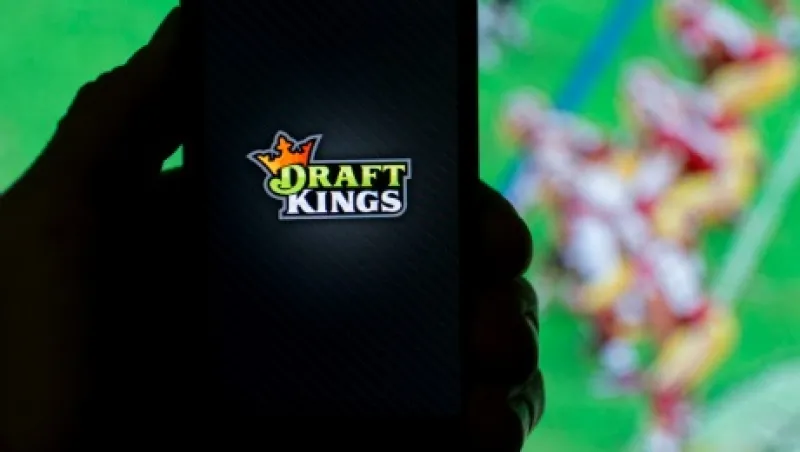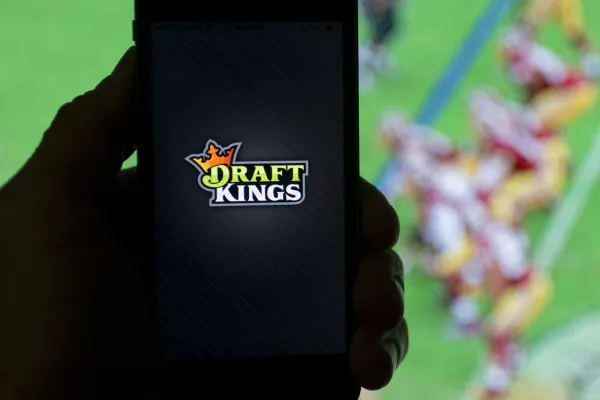If you’ve recently watched any live sports on television in the U.S., you’ve most likely seen commercials for DraftKings and FanDuel, the two biggest daily fantasy sports game companies.
The six-year-old industry is growing like wildfire, and analysts expect that to continue. But this doesn’t mean the two money-losing companies — which account for 95 percent of the market and are valued at more than $1 billion each — will be the ultimate beneficiaries.
“People like the product and service; the industry exists and is real,” observes Adam Krejcik, managing director of digital and interactive gaming at Eilers Research, a boutique research firm in Anaheim Hills, California. “Less certain is whether the eventual winner will be one of those two companies — and whether there is room for both.”
The reputation of both outfits was tainted by news that broke Monday that an employee of DraftKings prematurely released data about the site’s biggest contest and won $350,000 the same week on FanDuel. That raised concerns about insider trading. Both companies denied any skullduggery, but they have now barred their employees from playing on other fantasy game sites. (Employees were already forbidden to play on their own sites.)
The New York State attorney general’s office on Tuesday launched an investigation into DraftKings and FanDuel’s practices, and on Thursday a player from Kentucky filed a class-action suit in federal court in Manhattan accusing both companies of fraud, false advertising and negligence.
For an entry fee that ranges from less than $1 to more than $1,000, participants can go online to choose a roster of players for each day’s games. The entrant whose players produce the best statistics that day wins the pool.
You may be scratching your head, wondering, Isn’t sports betting illegal outside of Las Vegas? The answer is yes, although fantasy sports games were carved out of a 2006 law prohibiting Internet gambling because they were deemed games of skill, rather than chance. (Of course, one could make the same argument about any kind of sports gambling.)
One issue that’s not under dispute is the games’ popularity. Krejcik estimates they will have 3.9 million paying participants in North America during the fourth quarter. According to his research, a whopping 95 percent of these users are male. Most are white and between the ages of 25 and 35.
With regard to fantasy sports, “the concept of being able to wager or put in real money and win is attractive for a lot of people,” Krejcik says. “People can see their results instantly on their mobile device. This fits into a theme for Millennials.”
Sports leagues and teams clearly see financial opportunities for themselves in the games. FanDuel has sponsorships with 16 of the National Football League’s 32 teams and DraftKings with 12. Star owners Jerry Jones of the Dallas Cowboys and Robert Kraft of the New England Patriots have stakes in DraftKings. Whereas the NFL as a league is steering clear of involvement with the games because it sees them as gambling, Major League Baseball, the National Hockey League and Major League Soccer have invested in DraftKings, and the National Basketball Association (NBA) has invested in FanDuel.
Media companies are in on the action too. Comcast and Time Warner have invested in FanDuel, and Fox Sports and Madison Square Garden Co. have invested in DraftKings. Other notable investors include KKR & Co. and Google Ventures, in FanDuel, and Menlo Park, California–based venture capital firm Redpoint Ventures, in DraftKings.
There could be big money in it for the leagues and teams. “Once that revenue stream is legalized and protections are in place for the integrity of the game,” teams will seek to gain control of the revenue, just as they have for secondary ticket markets, which used to be controlled by brokers and scalpers, says Phil de Picciotto, founder and president of sports management firm Octagon in Norwalk, Connecticut. “There’s a tremendous amount of money being spent, and property holders [teams and leagues] will find a way to capture that revenue for themselves, rather than others who have no direct stake.” NBA commissioner Adam Silver wrote an opinion piece in the New York Times last November in which he argued that sports gambling should be legalized.
The fantasy sports game craze is a boon for sports broadcasters. “Part of what’s driving the audience to events is that people have a betting interest,” says Steve Griffith, general manager of Vizion Group, a sports marketing and public relations firm in Berwyn, Pennsylvania. “The fact that a few dollars are at stake adds to the emotional attachment that all sports and entertainment seek.”
As for FanDuel and DraftKings, they are hemorrhaging cash. FanDuel produced $57 million of revenue last year while doling out $564 million in cash prizes, according to the Wall Street Journal. DraftKings had $30 million of revenue while awarding $300 million. The companies also are spending heavily on their television advertising. And the bad publicity this past week won’t help.
To turn a profit, FanDuel and DraftKings will likely need to attract ads to their web sites — but they probably won’t be able to do that until the issue of whether the games constitute gambling is resolved. “That’s an important distinction to attract company money,” de Picciotto says. “Companies aren’t ready to embrace gambling on sports because of the effect on their brand image.”
The companies’ revenue now comes from keeping about 10 percent of the entry fees. (The $350,000 winner noted above paid a $25 entry fee.)
Meanwhile, Griffith says the sports fantasy game industry faces a huge risk if Internet sports gambling is legalized, which some states are considering as they search for tax revenue. If that does happen, “people can just bet on games; they don’t have to see how many yards [Pittsburgh Steelers wide receiver] Antonio Brown got for their fantasy team,” Griffith says. “Just cover the spread.”






